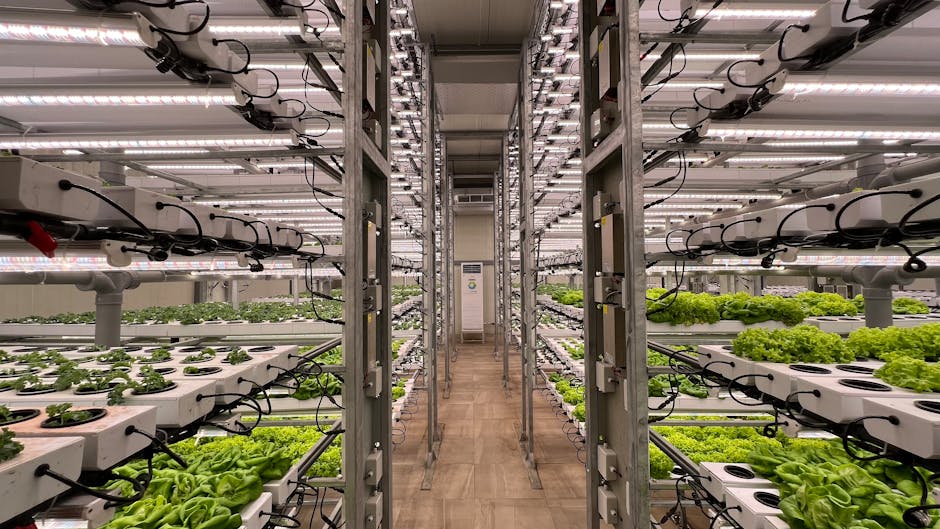The Top South African Tech Start-up Success Stories
In the realm of South African tech start-ups, success stories have reached unparallelled heights, transcending expectations and transforming industries. These narratives showcase the triumph of innovation and the unyielding spirit of entrepreneurs who dare to dream beyond conventional boundaries.
From e-commerce platforms revolutionising online shopping to fintech innovations reshaping financial services, these start-ups have made significant strides in improving various aspects of society. Healthtech advancements have also emerged as a game-changer, enhancing healthcare delivery across South Africa.
Despite facing numerous challenges along the way, the entrepreneurial spirit has prevailed, paving the way for remarkable growth and recognition within the tech industry. As we delve into these top South African tech start-up success stories, it becomes evident that their impact extends far beyond national borders.
With promising future prospects on the horizon, this article aims to shed light on their continued rise and inspire others in pursuit of liberation through technology-driven entrepreneurship.
Key Takeaways
- South African tech start-ups have achieved unprecedented success and transformed industries.
- E-commerce platforms have revolutionised online shopping and provided convenience to consumers.
- Healthtech advancements are improving healthcare in South Africa.
- The combination of tech skills development and government support creates a favourable ecosystem for start-up success.
E-commerce Platforms Revolutionising Online Shopping

The proliferation of e-commerce platforms in South Africa has significantly transformed the landscape of online shopping, revolutionising traditional retail practises and providing consumers with unprecedented convenience and access to a diverse range of products.
With the advent of mobile payments and virtual reality shopping experiences, these platforms have further enhanced the overall online shopping experience.
Mobile payments have played a crucial role in driving the growth of e-commerce in South Africa. The availability and accessibility of mobile payment systems have eliminated the need for physical cash transactions, making it easier for consumers to make purchases on-the-go. This has not only made online shopping more convenient but has also facilitated financial inclusion by allowing individuals without bank accounts to participate in digital commerce.
Moreover, virtual reality (VR) shopping experiences have emerged as a game-changer in the e-commerce industry. By simulating real-world environments through immersive technologies, VR allows consumers to visualise products before making a purchase. This not only enhances their overall shopping experience but also reduces potential buyer’s remorse. Additionally, VR shopping provides an avenue for retailers to showcase their products in a more engaging and interactive manner, ultimately boosting sales.
These advancements in e-commerce platforms are shaping consumer behaviour and challenging traditional brick-and-mortar retail models. With increasing internet penetration rates and smartphone adoption across South Africa, more customers are opting for the convenience offered by online shopping platforms.
Transitioning into fintech innovations transforming financial services: As e-commerce continues to thrive in South Africa, fintech innovations are simultaneously reshaping how financial services are delivered.
Fintech Innovations Transforming Financial Services

Fintech innovations in South Africa have revolutionised the financial services sector, ushering in a new era of technological advancements and reshaping the way financial transactions are conducted. This transformation has been driven by the adoption of blockchain applications and digital banking solutions that offer increased efficiency, security, and accessibility.
Blockchain technology has emerged as a game-changer in the financial industry, providing transparency and trust in transactions. It enables secure peer-to-peer transfers without the need for intermediaries, reducing costs and eliminating delays. Blockchain-based platforms such as Luno have gained popularity in South Africa, offering digital wallets for cryptocurrencies like Bitcoin and Ethereum.
Digital banking solutions have also played a significant role in transforming financial services. Companies like TymeBank and Discovery Bank provide innovative mobile banking experiences that cater to the needs of tech-savvy consumers. These platforms offer features such as instant account opening, easy money transfers, and personalised financial management tools.
To provide a visual representation of these fintech innovations, here is a table showcasing some notable examples:
| Fintech Innovation | Description |
|---|---|
| Blockchain Applications | Enables secure peer-to-peer transfers without intermediaries |
| Digital Banking Solutions | Offers innovative mobile banking experiences |
These advancements in fintech have not only improved access to financial services but also empowered individuals by giving them greater control over their finances. The convenience of digital banking solutions allows users to manage their accounts anytime, anywhere.
Transitioning into the subsequent section about healthtech advancements improving healthcare in South Africa, it is evident that technology continues to play an integral role across various sectors.
Healthtech Advancements Improving Healthcare in South Africa

Healthtech advancements are revolutionising healthcare in South Africa by leveraging technology to improve patient care, increase access to medical services, and enhance overall efficiency in the healthcare system. Telemedicine solutions and digital health initiatives have played a crucial role in transforming healthcare delivery across the country.
One of the key areas where healthtech has made a significant impact is in telemedicine. With the help of telemedicine solutions, patients can now consult with healthcare professionals remotely, eliminating the need for physical visits to clinics or hospitals. This has been particularly beneficial for patients living in remote or underserved areas who previously had limited access to healthcare services. Through video consultations and remote monitoring, doctors can diagnose and treat patients without them having to travel long distances.
Digital health initiatives have also improved patient care by providing tools that enable patients to monitor their own health conditions at home. For instance, mobile applications and wearable devices allow individuals to track their vital signs such as heart rate, blood pressure, and glucose levels. This data can be shared with healthcare providers who can then provide personalised recommendations or interventions based on real-time information.
In addition to improving patient care, healthtech advancements have also enhanced overall efficiency within the healthcare system. Electronic medical records (EMRs) have replaced paper-based systems, enabling seamless sharing of patient information between different healthcare providers. This not only reduces administrative burdens but also ensures accurate and comprehensive medical records that aid in better decision-making.
Telemedicine solutions and digital health initiatives have brought about profound changes in South Africa’s healthcare landscape. By leveraging technology, these advancements have improved access to medical services while enhancing patient care and system efficiency. However, despite these successes, there are still challenges that need to be addressed.
Overcoming Challenges: The Entrepreneurial Spirit

To overcome challenges in the healthcare industry, entrepreneurs in South Africa have demonstrated their innovative spirit by developing new technologies and solutions that improve patient care and increase access to medical services.
For example, a start-up called HealthHub has developed a mobile application that allows individuals to easily schedule appointments with doctors, reducing wait times and improving overall efficiency in healthcare delivery.
The entrepreneurial spirit in South Africa’s healthcare sector is characterised by resilience and innovation. Entrepreneurs have identified key challenges faced by patients and healthcare providers alike and have come up with ingenious solutions to address these issues.
Some notable examples include:
-
MediCollect: This start-up has developed a platform that enables patients to securely store and access their medical records online. By digitising health records, patients can easily share their information with healthcare professionals, leading to more accurate diagnoses and improved treatment outcomes.
-
Lifesaver: Recognising the high prevalence of road accidents in South Africa, this start-up has created an emergency response app that connects users to nearby medical professionals. The app provides real-time information about the user’s location and routes them to the nearest available ambulance or hospital, ensuring prompt medical attention during emergencies.
-
Proactive Healthcare Solutions: This company focuses on preventative care by offering remote monitoring devices for chronic conditions such as diabetes. These devices collect data on vital signs like blood glucose levels or blood pressure readings, allowing healthcare providers to track patients’ health remotely and intervene when necessary.
-
GetHealth: In rural areas where access to healthcare facilities is limited, this start-up has developed a telemedicine platform that connects patients with doctors via video consultations. Through this technology, individuals can receive medical advice and prescriptions without having to travel long distances.
These examples highlight how entrepreneurs in South Africa are leveraging technology-driven solutions to overcome challenges in the healthcare industry. Their resilience and innovative approaches are paving the way for improved patient care and accessibility of medical services. As we explore further into the impressive growth and recognition of South African tech start-ups in the next section, it becomes evident that their efforts have not gone unnoticed.
Impressive Growth and Recognition in the Tech Industry

Impressive growth and recognition have propelled South Africa’s tech industry to the forefront of innovation, inspiring awe and admiration amongst global observers. The country is home to several tech hubs that are fostering a culture of innovation and entrepreneurship. These hubs provide a collaborative environment where start-ups can access resources, mentorship, and networking opportunities. They serve as incubators for ideas, nurturing the growth of tech start-ups and facilitating their success.
One key factor contributing to the impressive growth of South African tech start-ups is the government’s support for the sector. Recognising its potential to drive economic growth and create job opportunities, the government has implemented various initiatives to fuel innovation in the tech industry. This includes funding programmes, tax incentives, and regulatory reforms that make it easier for start-ups to operate and scale their businesses.
The government has also prioritised building a supportive infrastructure for technology companies by investing in digital infrastructure development. This investment has resulted in improved internet connectivity across the country, enabling start-ups to access global markets more easily.
As a result of these efforts, South African tech start-ups have gained international recognition for their innovative solutions across various sectors such as fintech, e-commerce, healthtech, and agritech. Their achievements have not only put South Africa on the map as a hub for technological innovation but also attracted foreign investments into the country’s start-up ecosystem.
Looking ahead, with continued government support and an increasing number of successful tech start-ups paving the way, South Africa’s tech industry holds promising future prospects. The stage is set for further growth and expansion as more entrepreneurs take advantage of the favourable environment created by supportive policies and thriving technology hubs.
In conclusion, the future of South Africa’s tech industry looks bright and promising, with ample opportunities for innovation, job creation, and economic growth.
Future Prospects: The Continued Rise of South African Tech Start-ups

Furthermore, the growing number of South African tech start-ups is akin to a blooming garden, with each start-up representing a unique flower that adds vibrancy and diversity to the overall landscape. The future prospects for these start-ups are promising, as they continue to empower the next generation through tech skills development and benefit from government support in fostering a conducive environment.
Tech skills development plays a crucial role in ensuring the continued rise of South African tech start-ups. These start-ups recognise the importance of nurturing and empowering the next generation with the necessary technical skills to thrive in the digital age. Many initiatives have been launched to bridge the skills gap and provide opportunities for young individuals to learn coding, software development, data analytics, and other essential tech skills. By equipping these individuals with knowledge and expertise, South African tech start-ups are not only creating a pool of talented professionals but also contributing to economic growth and innovation.
In addition to tech skills development, government support has been instrumental in fostering an environment conducive to start-up success. The South African government has recognised the potential of the tech industry as a driver of economic growth and job creation. As such, it has implemented various policies and initiatives aimed at supporting entrepreneurs and encouraging investment in technology-related ventures. This includes providing funding opportunities, tax incentives, streamlined regulations, and access to resources such as incubators and accelerators.
The combination of tech skills development and government support creates a favourable ecosystem for South African tech start-ups to thrive. With an ever-increasing pool of skilled professionals equipped with cutting-edge knowledge combined with supportive policies, these start-ups are well-positioned for future success. The continued rise of South African tech start-ups not only benefits individual entrepreneurs but also contributes significantly to economic advancement by driving innovation, creating jobs, attracting investments, and positioning South Africa as a hub for technological excellence on the continent.
Frequently Asked Questions
What are the specific challenges faced by South African tech start-ups in the healthcare sector?
South African tech start-ups in the healthcare sector face specific challenges. Firstly, there is a lack of access to funding, hindering their growth potential.
Additionally, regulatory barriers and complex bureaucratic processes make it difficult for start-ups to navigate the healthcare industry.
Limited adoption of digital health solutions by consumers and healthcare providers further poses a challenge.
Despite these obstacles, there are opportunities for innovation in education technology and renewable energy sectors that can be explored by South African tech start-ups to diversify their portfolios and overcome these challenges.
How have South African fintech start-ups managed to gain the trust of customers in an industry traditionally dominated by traditional financial institutions?
South African fintech start-ups have successfully attracted and retained customers in the competitive market through effective customer acquisition strategies. They have focussed on offering user-friendly platforms, personalised services, and innovative products to meet the diverse needs of customers.
Moreover, these start-ups have prioritised regulatory compliance by implementing robust security measures, adhering to financial regulations, and obtaining necessary licences. By demonstrating their commitment to protecting customer data and providing secure transactions, South African fintech start-ups have built trust with their customers in an industry traditionally dominated by traditional financial institutions.
What are some of the key factors that have contributed to the impressive growth of e-commerce platforms in South Africa?
Factors that have contributed to the impressive growth of e-commerce platforms in South Africa include increased internet penetration, improved logistics and delivery systems, and a growing middle class with disposable income.
Additionally, advancements in technology and digital payment solutions have made online shopping more convenient and secure.
The COVID-19 pandemic has also accelerated the shift towards e-commerce as consumers prioritise safety and convenience.
These factors have created a favourable environment for the growth of e-commerce platforms in South Africa.
Can you provide examples of specific innovative solutions developed by South African tech start-ups to overcome challenges in the entrepreneurial ecosystem?
Innovative solutions developed by South African tech start-ups have successfully overcome various challenges in the entrepreneurial ecosystem.
These solutions include platforms that provide access to funding and mentorship, such as Ventureburn and Injini.
Additionally, start-ups like SweepSouth have addressed the issue of unemployment by creating a platform for domestic workers to find work opportunities.
Overall, these innovative solutions demonstrate how South African tech start-ups are addressing entrepreneurship challenges through creative and impactful approaches.
What are the potential risks and obstacles that South African tech start-ups may face in the future, despite their current growth and recognition in the industry?
Potential regulatory and funding challenges loom on the horizon for South African tech start-ups, despite their current growth and recognition.
Regulatory hurdles can stifle innovation by imposing burdensome compliance requirements.
Furthermore, limited access to funding remains a persistent obstacle for start-ups, hindering their ability to scale and compete globally.
These potential risks could impede the future success of South African tech start-ups, necessitating proactive measures to address regulatory barriers and enhance funding opportunities.
Conclusion
In conclusion, the success stories of South African tech start-ups showcase the country’s growing prominence in the global tech industry.
The e-commerce platforms have revolutionised online shopping, while fintech innovations have transformed financial services.
Healthtech advancements have greatly improved healthcare in South Africa.
Despite facing challenges, the entrepreneurial spirit has prevailed, leading to impressive growth and recognition in the tech industry.
Looking ahead, with continued support and investment, South African tech start-ups have the potential to rise even further, like a shooting star illuminating the nite sky.
Contact us to discuss our services now!
